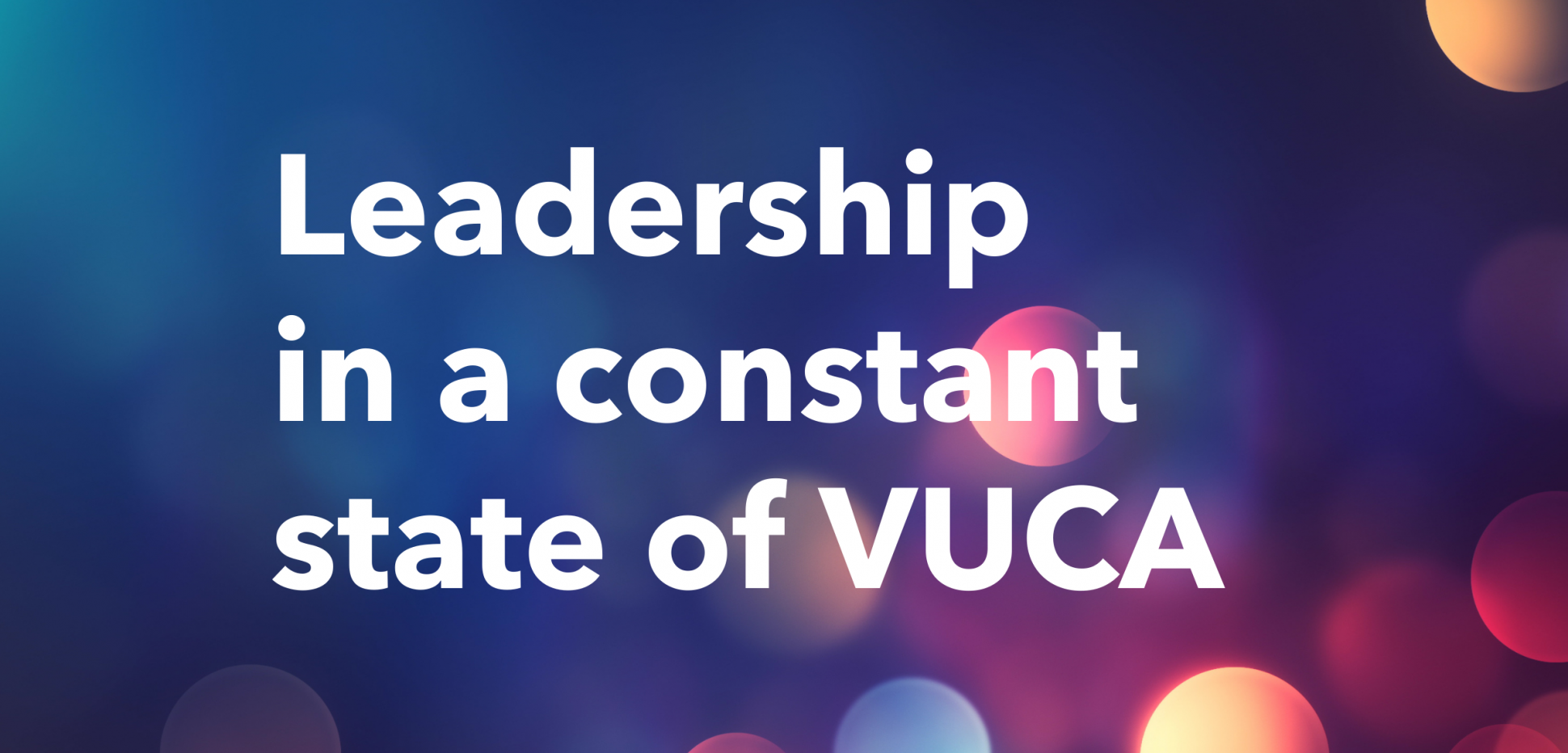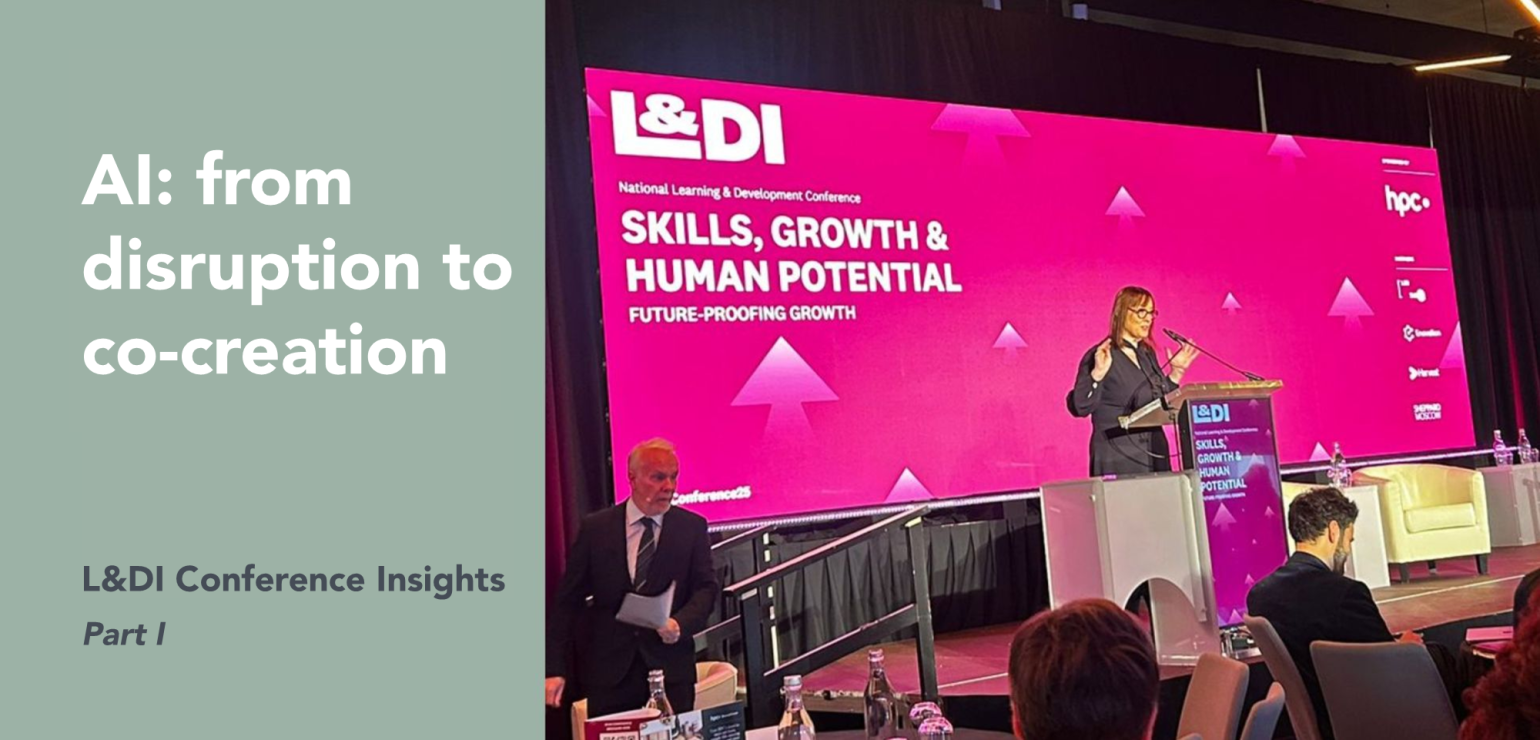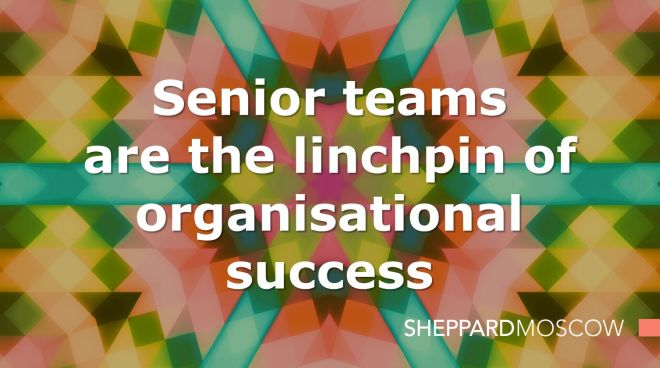Leadership in our times

In recent years, management literature has been peppered with references to the VUCA world, but the pandemic really brought home the reality of what VUCA really means. The volatility of the pandemic, the uncertainty for families and individuals, the complexity of issues for organisations and the ambiguity that it brought to our sense of what is real, what is normal.
Now here we are in October 2021. We are almost two years into a pandemic that shows no signs of abating, and could potentially hit us hard again during the winter months. While most children are back at school and we have said goodbye to home schooling (at least for a bit), there is still a great deal of volatility – ongoing media speculation, the vulnerability and anxiety of many, the urgent drive for continued vaccination, the impact on jobs and the economy, and a great debate about hybrid working – and how to make that work.
We seem to be in a constant state of VUCA.
During these ever-changing times, we have been working with leaders to help them navigate the challenges and find their path to agility. Our approach has varied from one context to another, but we have most often found ourselves reaching for Systemic Team Coaching to help leadership teams to collaboratively respond to the challenges they face, and for Appreciative Inquiry to enable people to build on what is working, even in the face of all the pressures of the past 18 months. We have helped leaders build deeper psychological safety, despite and often helped by virtual, and now hybrid, working. Our role has often been to help leaders and teams to learn from the searing experiences of leading through a succession of dramatic changes, thus enabling them to come out of this stronger.
The pandemic and the emergence of a hybrid workplace has thrown up questions about what it now takes to lead. Never before has there been such a focus on care and empathy for teams and colleagues, and it has been imperative for leaders to create connection, to encourage dialogue and sharing of experiences, and to process what teams and individuals are thinking and feeling. As leaders, we need to attend to the humanity first if we are to enable people to sustainably deliver not just now but over the coming years.
So how can leaders be the best of themselves now and in the future?
- Tune in – Tune in to people and get a sense of the professional and personal pressures they face. How are your people feeling? Burnout, anxious, confused? How is their mental wellbeing? And how can you make it safe for them to appropriately disclose their hopes and fears – so as to better adapt and enable your people?
- Share purpose and vision – No doubt you have your strategy and goals for 2022, but what is the sense of purpose and vision that sits above that? Perhaps, right now more than ever, people need to connect their work to a meaningful ‘greater whole’, to focus their energies.
- Come together – Leading can be a lonely experience at times, but the ability to lean into your network of peer leaders can provide the strength and support to survive and thrive.
- Listen always – Purposeful listening is a foundational leadership skill. This is the capacity to be and stay in the moment, listen empathically to colleagues and even if distractions happen, find ways to rapidly ground yourself and re-engage.
- Use your intuition – Leaders may worry that when everyone is not in the office, in person, it is harder to sense when someone is disengaged or struggling. But as we have experienced many times over since the Covid outbreak, it is perfectly possible to connect at depth with your people wherever they are. You just have to create the intention to do so, and value this enough to open up the necessary time and space.
During the pandemic, we have seen many leaders step up and show a brand of leadership that is authentic, compassionate and agile. The greatest danger is that, as organisations and leaders focus on growth and building back, these qualities are forgotten or discarded. In many ways, this is a more complex world than at the height of the pandemic, with a mixture of human motivations, fears and desires, set against a need for organisations to change and grow at pace.
This is truly a VUCA world; there is no changing that. We’d love to know what you are finding helpful in your own leadership experience; and how you are bringing your team on this VUCA journey!

 Andrea Cusack
Andrea Cusack 
 Aoife Keane
Aoife Keane 
